Jeff Kramarczyk wants to bring quality coffee to Maricopa.
Actually, he wants to increase the level of coffee in the entire Phoenix metro area.
When it comes to coffee connoisseurs, Kramarczyk said, “You traditionally think of Portland, Seattle, San Francisco.”
But he said Phoenix, and its surrounding areas, can be just as savvy about its caffeine.
He has one goal: “To increase the Phoenix market in the specialty coffee area and its position in that in terms of quality and coffee consciousness.”
“Everything Crate Enterprises is going to be doing is going to be on that mission,” Kramarczyk said.
The name came from Kramarczyk thinking of how milk was once delivered to people’s doorsteps in crates, an idea that brings to his mind “quality” and “personal service.”
He intends to achieve that aim primarily by selling high-quality beans to restaurants, the hospitality industry and other coffee distributors.
“Today, most of the coffee you get at a restaurant, you expect very little. Most of the hotels you go to, you expect very little,” Kramarczyk said. “My ultimate goal would be, for those people who enjoy coffee, I want them to be able to make coffee at home, go to a restaurant, a hotel or a coffee shop and know that they are going to get good coffee.”
Kramarczyk plans to bring his personal expertise to locals through a pour-over bar in the Maricopa Towne Center on Hathaway Avenue where he is subletting 420 square feet from his wife’s dental business.
He said he is planning on a soft opening the third week in January with a grand opening the first week in February.
Pour-over bars aren’t exactly cafes, though they do sell coffee. They just sell it one single cup at a time and focus more on the method of brewing or making the coffee.
“Jeff’s concept is a little different,” said Ed Viser, certified interior designer with Café Design & Architecture LLC, a Maricopa firm helping Kramarczyk design the pour-over bar.
Viser described a pour-over bar as “more of a destination, a place where people can learn about coffee or pour over the process.”
At a pour-over bar, as opposed to a café, the drinks are “hand crafted,” he said. “It takes a lot more effort; you have to have a much higher-quality origin coffee.”
Kramarczyk said, “All of the design elements that we’re going to use are going to be reclaimed.”
“Every effort is going to be made to find building materials … in Maricopa,” he said.
“All the pour-over methods, there’s a bunch of different kinds, but each one brings its own, unique flavor to it.”
Partially for that reason, Crate Coffee will be open limited hours in the morning, possibly 6 to 9 a.m., depending on customer demand.
“It’ll be focused on single-cup sales,” Kramarczyk said. “It’s all going to be hand poured. It’s not vat brewed, it doesn’t sit in a carafe, and it’s all going to be made at an individual cup basis.”
Customers will be able to get an iced coffee — “served out of a tapper, just like beer is” — hot coffee and Italian sodas. Espresso will not be available.
“And it’s all going to be to-go,” Kramarczyk said.
The store will sell beans and various brewing equipment, and offer the chance to learn to use it.
“Everything I’m doing is always going to have some education associated with it,” Kramarczyk said. “I don’t intend to just sell a cup of coffee. I intend to educate my customers.”
To that end, he will have regularly scheduled classes for people to learn about the different ways to make a cup of coffee.
“So you can come in for a class on siphon brewing and you can actually try your hand at doing it,” Kramarczyk said. “And if you buy a piece of equipment, you’ll be able to learn, hands on, how to use it.”
Kramarczyk devoted just as much care and personal attention to how he selects the beans he wants to sell to larger outlets.
“I’m sourcing from all whole-roasters and it’s never based on price; it’s always based on quality and how they approach the roasting,” Kramarczyk said. “So (the roasters) have to be conscientious of the cycle of coffee, meaning they have to be conscientious of the farming, land and roasting methods.”
Kramarczyk will search for quality coffee everywhere and not limit himself to one global area or niche.
“I want to make sure the roasters I’m using have a robust organic offering, have a robust Fair Trade offering, in conjunction with the other coffees they sell,” he said, referring to the sometimes pricier products that support farming methods promoting sustainability.


![Elena Trails releases home renderings An image of one of 56 elevation renderings submitted to Maricopa's planning department for the Elena Trails subdivison. The developer plans to construct 14 different floor plans, with four elevation styles per plan. [City of Maricopa]](https://www.inmaricopa.com/wp-content/uploads/2024/04/city-041724-elena-trails-rendering-218x150.jpg)
![Affordable apartments planned near ‘Restaurant Row’ A blue square highlights the area of the proposed affordable housing development and "Restaurant Row" sitting south of city hall and the Maricopa Police Department. Preliminary architectural drawings were not yet available. [City of Maricopa]](https://www.inmaricopa.com/wp-content/uploads/2024/04/041724-affordable-housing-project-restaurant-row-218x150.jpg)
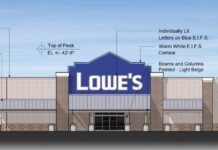

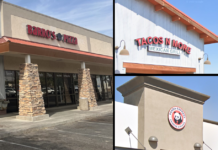
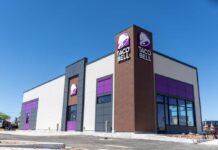
![Silk Press Xpress ready to welcome new clients Maricopa Chamber of Commerce Director Kelly Anderson and Councilmember Henry Wade smile as LaQuinta Fisher cuts the ribbon in front of her new salon, Silk Press Xpress, on April 6, 2024. [Monica D. Spencer]](https://www.inmaricopa.com/wp-content/uploads/2024/04/spencer-040624-silk-press-xpress-ribbon-cutting-web-01-218x150.jpg)
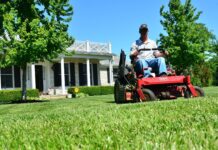
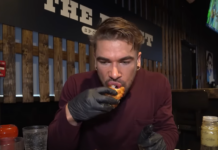


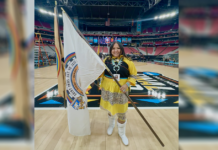


![Elena Trails releases home renderings An image of one of 56 elevation renderings submitted to Maricopa's planning department for the Elena Trails subdivison. The developer plans to construct 14 different floor plans, with four elevation styles per plan. [City of Maricopa]](https://www.inmaricopa.com/wp-content/uploads/2024/04/city-041724-elena-trails-rendering-100x70.jpg)

![Affordable apartments planned near ‘Restaurant Row’ A blue square highlights the area of the proposed affordable housing development and "Restaurant Row" sitting south of city hall and the Maricopa Police Department. Preliminary architectural drawings were not yet available. [City of Maricopa]](https://www.inmaricopa.com/wp-content/uploads/2024/04/041724-affordable-housing-project-restaurant-row-100x70.jpg)